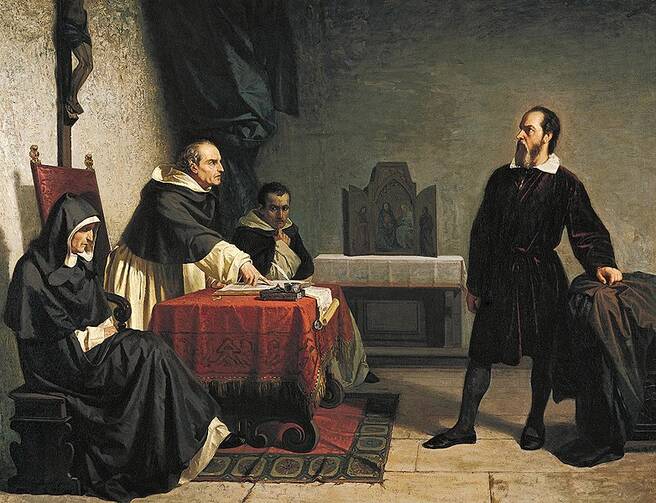Review: The Life and Times of Galileo
In Galileo and the Science Deniers, Mario Livio portrays the 17th-century polymath as a rebel and a genius, often stubborn and outspoken, and nearly as devoted to the arts and humanities as he was to science. Livio offers three reasons for writing his new book, but the most compelling reason to read this biography is the relevance of Galileo’s famous political and religious struggles to today’s problems.
Livio, an astrophysicist, is able to portray science in a way that laypersons can understand. His writing in Galileo is straightforward and conversational, and he is at home in storytelling mode, especially when he relates some of Galileo’s exuberant disagreements with other scientists and some Jesuit mathematicians and astronomers.
Livio describes Galileo’s early family life and his interest in music and the arts and depicts Galileo as a genius and the father of modern astronomy and astrophysics. Galileo’s telescope, he notes, was the multi-great-grandfather of the Hubble Space Telescope. His observations about falling objects contributed to Newton’s and Einstein’s ideas about gravity. Galileo brought a sense of order to the cosmos. He was also a great proponent of Copernicus’s idea that the Sun was the center of the solar system, not the Earth, which caused him great difficulty with other scientists and the Catholic Church, which believed in a geocentric system.
In comparing the culture that condemned Galileo to our own, Livio writes that the mindset that leads to nonscientific decrees also prevails in the United States to this day.
For a time, he enjoyed the support of many Copernican scientists, priests and cardinals, and even the pope. But after his publication of the Dialogo, which, among other things, promoted Copernicanism, Galileo found his support from Pope Urban VIII withdrawn. In 1633, during an outbreak of the plague, Galileo was “pronounced a suspected heretic, forced to recant his Copernican ideas, and eventually placed under house arrest.” He died nine years later in Florence.
In comparing the culture that condemned Galileo to our own, Livio writes that the mindset that leads to nonscientific decrees (like the decree of the Vatican’s Holy Congregation for the Index in 1616 against Copernicanism) also prevails in the United States to this day. Livio points out policies that encourage the teaching of a thinly veiled creationism as ‘intelligent design,’ to steer students’ minds away from Darwin’s theory of evolution, and he sees President Trump’s continued promotion of fossil fuels as “nothing short of shocking.”
Disputes about the handling of the Covid-19 pandemic offer another parallel. In an email interview with America, Livio was as frank as I believe Galileo would have been. He wrote:
There is no question that the initial dismissive response of the administration to the scientists' warnings concerning the coronavirus has had disastrous consequences…. One of the most important lessons from the Galileo affair has been: Believe in science! To bet against science when human life is at stake is insane.
This article also appeared in print, under the headline “‘And yet it moves’,” in the May 11, 2020, issue.









